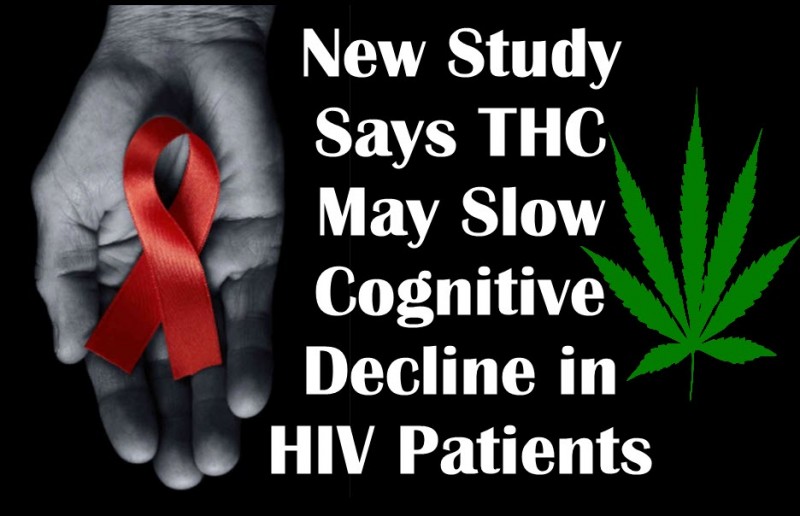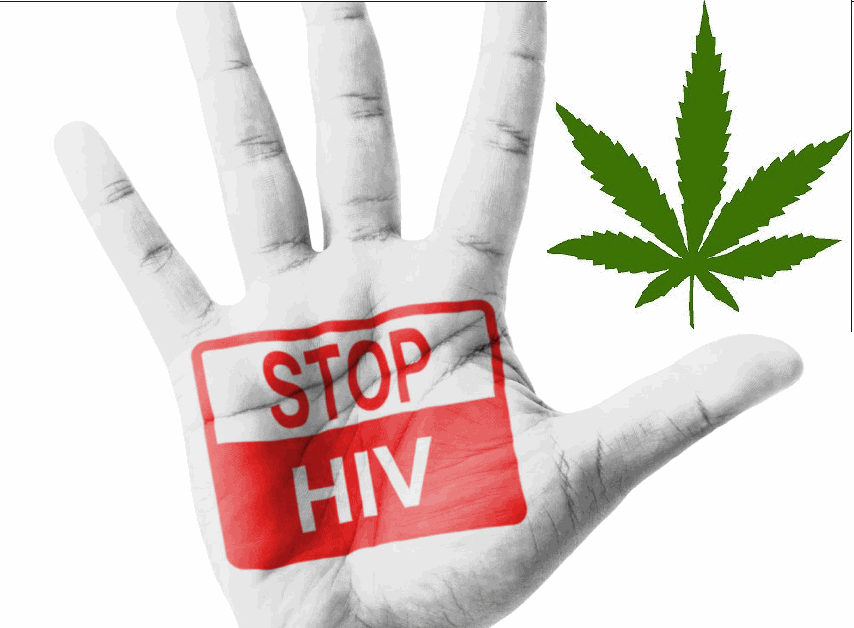New Study Says THC May Slow Cognitive Decline in HIV Patients
THC May Slow Cognitive Decline in HIV Patients Says New Study from CannabisNet on Vimeo.
A new study, the latest of which supports scientific evidence of cannabis as hope for HIV/AIDS, reveals that the herb could prevent mental decline in HIV patients.
The research, carried out by Michigan State University and published in the journal AIDS, found that patients who use cannabis have significantly lower inflammatory white blood cells which can inhibit mental decline. Around 50% of HIV patients suffer from brain inflammation because the immune system is overtasked with battling the virus.
Professor Norbert Kaminski, study lead author, says, “Those who used marijuana had inflammatory cell levels pretty close to a healthy person not infected with HIV.” Mike Rizzo, study co-author adds, “This decrease of cells could slow down, or maybe even stop, the inflammatory process, potentially helping patients maintain their cognitive function longer.”
To conduct the study, the researchers looked at blood samples taken from 40 HIV positive patients, some of whom were using cannabis. Inflammatory white blood cells were then isolated from the blood samples. The researchers analyzed the effect of THC on the white blood cells. The results were promising.
Professor Kaminski, who also heads Michigan State University’s Institute for Integrative Toxicology, has been studying the impact of cannabis on the immune system since 1990. In fact, Kaminski’s laboratory pioneered the identification of proteins that enable cannabis compounds to bind with the surface of immune cells. Before Kaminski had identified these proteins, the scientific community had no idea how the cannabinoids interacted with the immune system.
Conventional treatment for HIV patients is primarily in the form of antiretroviral therapy wherein several pharmaceutical medications are prescribed to the patient to help the body fight the virus. Antiretroviral therapy helps the immune cells stay intact although it may lead to the white cells becoming overworked and developing into inflammatory white blood cells.
“We’ll continue investigating these cells and how they interact and cause inflammation specifically in the brain,” adds Rizzo. “What we learn from this could also have implications to other brain-related disease like Alzheimer’s and Parkinson’s since the same inflammatory cells have been found to be involved.”
Learning how cannabinoids and the immune system interact could pave the way for developing new therapies aimed at helping HIV patients maintain cognitive function. “It might not be people smoking marijuana,” says Kaminski. “It might be people taking a pill that has some of the key compounds found in the marijuana plant that could help.”
HIV Fertile Ground For Cannabis Research
HIV is one of the lesser-studied life-threatening diseases that cannabis can help with, when compared to the dozens of clinical trials analyzing the impact of cannabis on certain cancers, chronic pain, multiple sclerosis, Parkinson’s, Alzheimer’s, epilepsy, and more.
But that looks like it’s going to change soon. The growing body of research backing up the efficacy of cannabis for HIV patients has piqued the interest of scientists.
Just a few days ago, Florida researchers announced that with the help of a grant, they will be studying cannabis and HIV. Dr. Robert Cook of the University of Florida will be the lead investigator of a research study that is set to begin January 2018. Specifically, the study will analyze how cannabis affects HIV patients, as well as its viability as alternative treatment to harmful opioids.
Dr. Cook and his team were awarded with a $3.2 million RO1 grant by the National Institute on Drug Abuse (NIDA). The funding was approved following the launch of Florida’s Amendment 2 last January, which grants state citizens diagnosed with chronic illness to access cannabis, including HIV patients. The study will look at 400 people living with HIV to analyze the relationships between consuming cannabis and its ability to suppress HIV symptoms, chronic inflammation markers, and cognitive or behavioral health aspects.
“The main questions we will ask will be: what do patients currently use, do they think it’s helping them and how do they know it’s helping,” says Dr. Cook. Researchers will monitor cannabinoid content, quantity, consumption methods, and frequency of use to determine if any of these play a role in symptom management as well as how HIV presents itself in the body. Additionally, researchers won’t be providing patients with cannabis but instead will track their current usage.
Florida has the highest rate of new HIV infections yearly in the United States. Around 30% of them use cannabis in one form or another. Many of them have reported that it helps manage various HIV symptoms such as stress, anxiety, pain, nausea, and sleep difficulty, while around 70% of them report some degree of health benefit.
“Hopefully, this study can help provide insight on appropriate use and dosing to give physicians and patients some guidance on how to obtain the best outcome and quality of life possible,” says 29-year-old HIV patient Seth Stambaugh.
OTHER STORIES YOU MAY ENJOY...
HOW CANNABIS IS HELPING HIV PATIENTS, CLICK HERE.
OR..
CANNABIS STRAINS FOR HIV AIDS, CLICK HERE.







